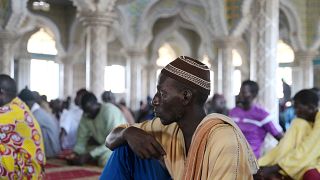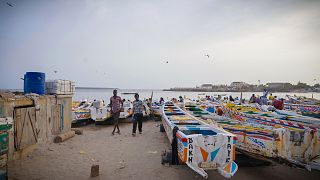Senegal
Small mounds of sand dot a beach in northern Senegal and reveal the resting places of numerous migrants who hoped to make the treacherous journey from West Africa to Spain.
Mouhamed Niang's 19 and 24-year-old nephews went missing in late June.
"I've been looking for my nephews for three weeks now without any news from them," he says.
"I heard the government say there are some bodies collected onshore and buried in graves near the beach. That is really awful."
The U.N. International Organisation for Migration says at least 2,300 migrants left Senegal trying for Spain's Canary Islands in the first six months of the year but only about 1,100 arrived.
It is unclear what happened to the 1,000-plus people who did not make it to Spain. They may have died at sea, been rescued from capsized boats or be held by authorities.
One of the survivors of a boat which capsized on its way to Europe in early July, Ibnou Diagne, described his experience.
"I lost many people when the boat capsized. I lost my friend Abdourahmane. I lost everything. I paid money, the first time 420 dollars and 680 dollars the second time.
"The sea is not good. I lost everything. I lost my clothes. If I were to give advice here it is. If someone wants to travel to Spain, don’t take a pirogue [canoe], you have to take a plane."
he beach burials have happened for years but increased greatly in 2023, with about 300 bodies in the first seven months, compared with just over 100 for the whole of 2022.











01:40
‘The Herds’ puppets highlight climate change in Lagos
01:16
Trump sparks backlash after remarking about Congo
00:50
Spain: human trafficking ring smuggling moroccans into europe dismantled
Go to video
Tunisia dismantles encampments housing migrants stranded en route to Europe
Go to video
Egypt says it has made "strenuous efforts" in tackling illegal migration, calls for European support
01:24
UK PM Keir Starmer slams previous government's Rwanda immigration scheme as "inefficient"